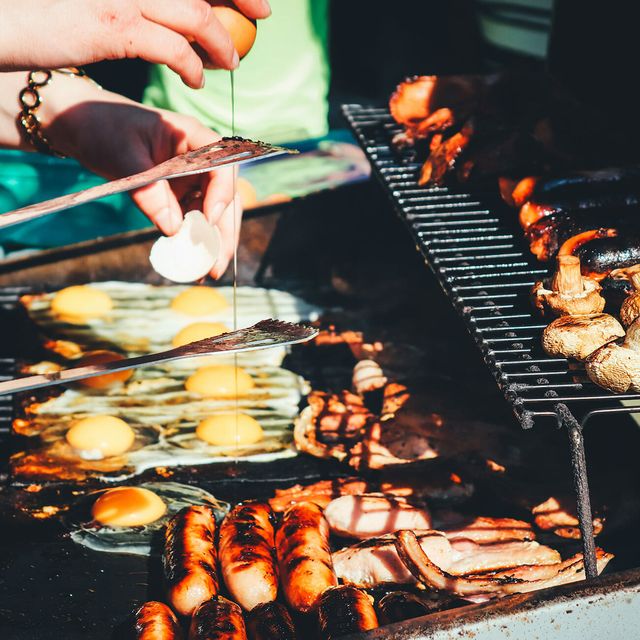On the back of its convenience and high-heat potential, gas is America’s preferred grill fuel, and it has been for decades. Liquid propane is the leading force here, but natural gas has turned a corner, with consumer surveys reporting natural gas grill use is at an all-time high, making up 36 percent of total gas grill usage in the U.S. So, what’s the difference between propane and natural gas, and which is better? There are three things you need to know.
Convenience
Propane comes in refillable tanks that usually cost around $30 new — refills are typically in the $20 range — and are available at nearly every hardware store in the country. Natural gas, on the other hand, must be fed into the grill through a pre-existing gas line. This creates two issues: you’ll have to hire a professional to install a gas line extension convenient to the grill and you won’t be able to move your grill once the line is in place. But convenience is a two-way street. A natural gas grill will never need to be refilled and you’ll never need to worry about it running out mid-cook.
If you have access to a gas line, don’t plan on traveling with your grill and don’t want to bother with refills, natural gas is a good option. If you want to take your grill with you, don’t mind the occasional fill-up or the cost of adding a gas line is too much, propane is the right move.
Cost
Observing only fuel cost and efficiency, natural gas is cheaper than liquid propane. But if your home doesn’t have a natural gas tank or would require commissioning a professional to add an extension to your grill, it’s not a simple decision. Plus, natural gas grills usually demand a slightly higher price tag.
A general rule of thumb: natural gas will be cheaper in the long run for regular grillers but propane may be the economical choice for seasonal, sporadic or mobile grillers.
Cooking
One-to-one, propane packs more energy into the same space as natural gas, but any decent natural gas grill compensates for this by simply widening the gas intake valve. Both fuels generate the same high, consistent heat gas grilling is all about. In other words: you won’t be able to tell the difference between propane and natural gas once everything is plugged in.
Note: Purchasing products through our links may earn us a portion of the sale, which supports our editorial team’s mission. Learn more here.

















